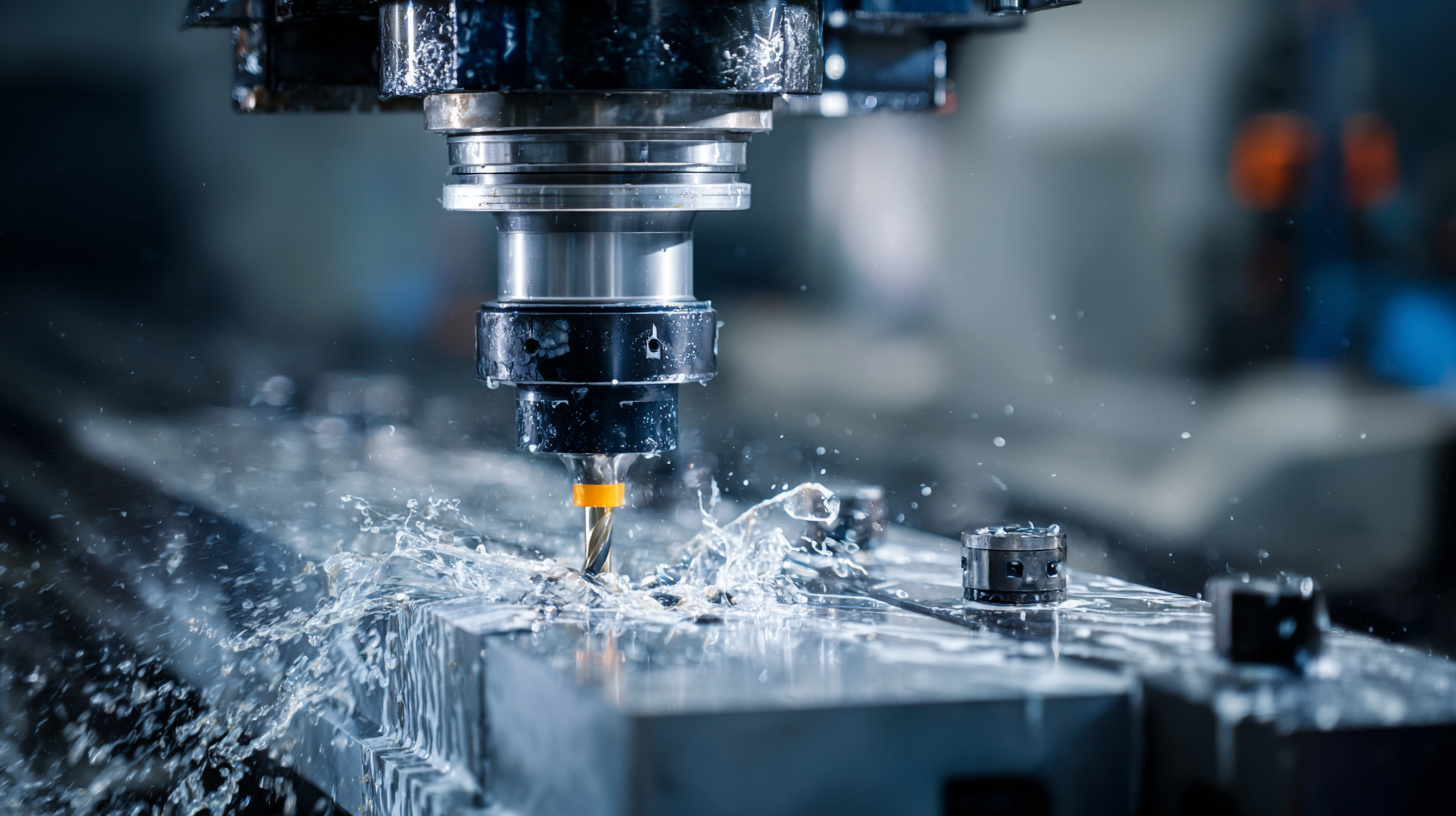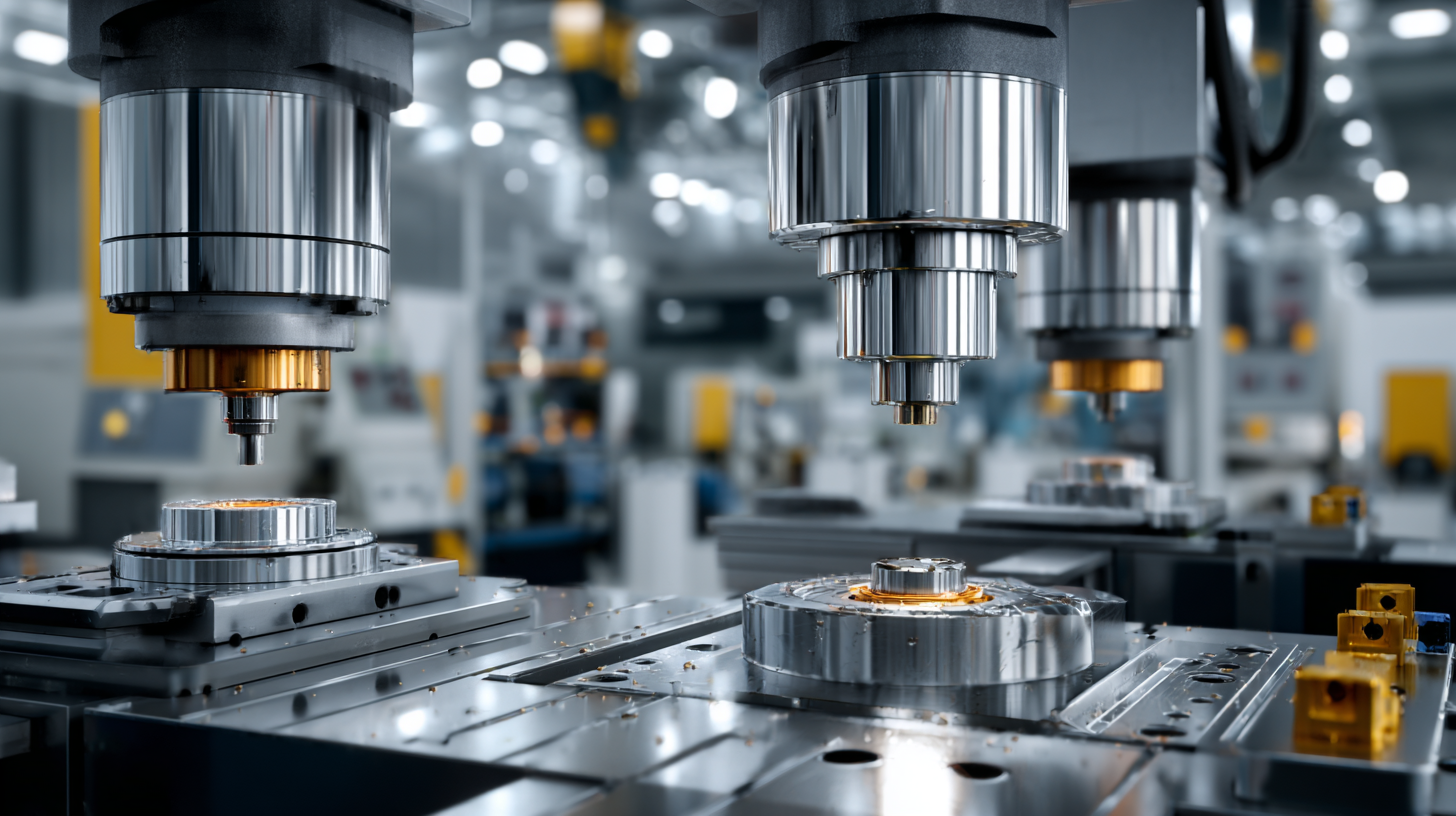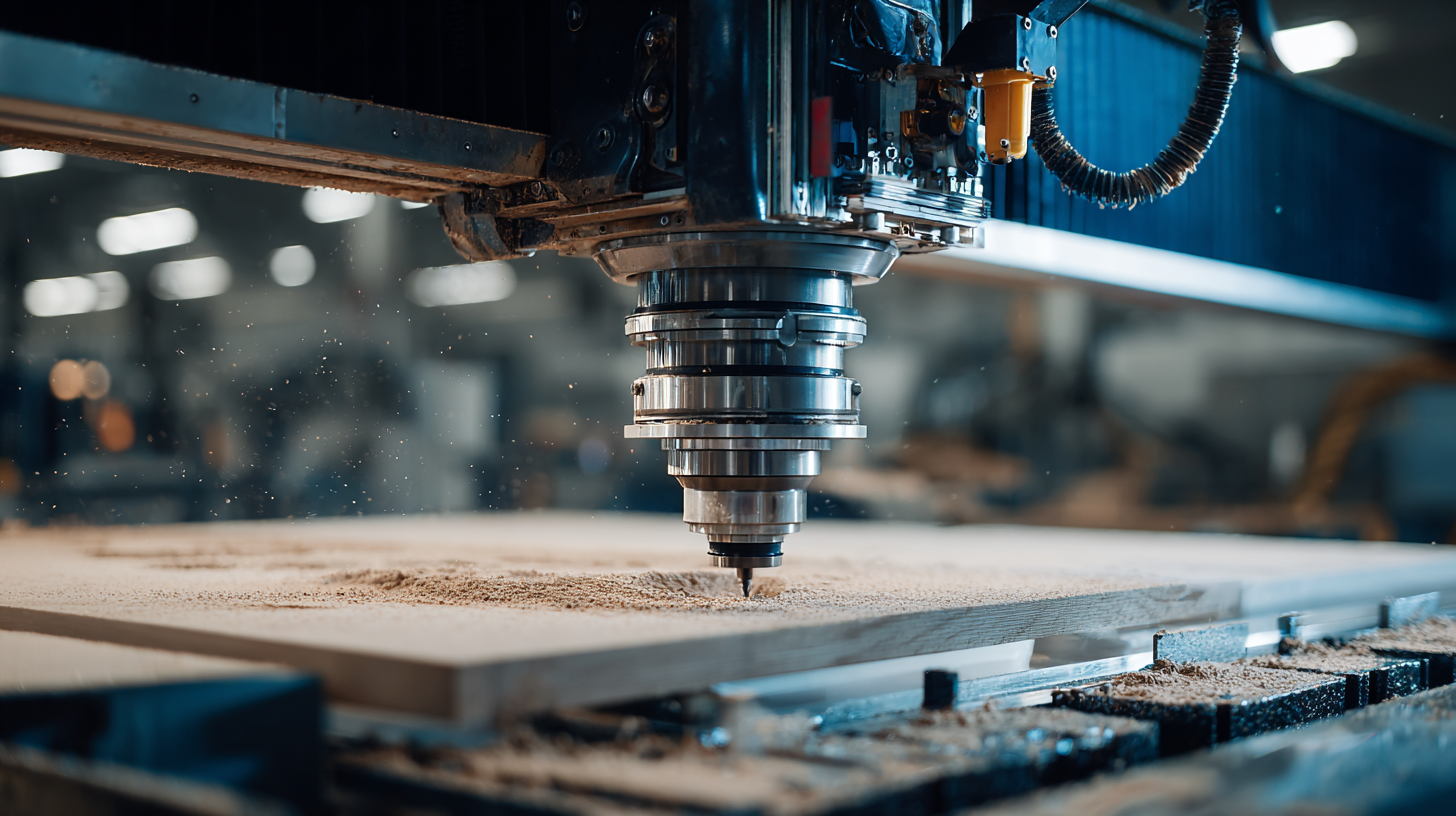7 Best Industrial CNC Machines Revolutionizing Precision Manufacturing Today
The rapid advancement of technology in the manufacturing sector has led to a significant transformation in precision engineering, particularly with the integration of industrial CNC (Computer Numerical Control) machines. According to a recent report by MarketsandMarkets, the CNC machine market is projected to reach USD 117.09 billion by 2026, growing at a CAGR of 6.4% from 2021. This growth reflects the increasing adoption of automation and precision manufacturing processes across various industries, including aerospace, automotive, and electronics.
 Industrial CNC machines are at the forefront of this revolution, offering unparalleled accuracy and efficiency, which are essential for meeting the evolving demands of modern production environments. As manufacturers strive to improve productivity while reducing costs, the benefits of advanced industrial CNC technology become increasingly vital, positioning it as a cornerstone of contemporary manufacturing strategies.
Industrial CNC machines are at the forefront of this revolution, offering unparalleled accuracy and efficiency, which are essential for meeting the evolving demands of modern production environments. As manufacturers strive to improve productivity while reducing costs, the benefits of advanced industrial CNC technology become increasingly vital, positioning it as a cornerstone of contemporary manufacturing strategies.
The Emergence of CNC Technology in Modern Manufacturing
CNC technology, or Computer Numerical Control, has emerged as a transformative force in modern manufacturing, revolutionizing how precision machining is approached across various industries. Traditionally, manufacturing relied heavily on manual labor and mechanical tools, which often resulted in inconsistencies and inefficiencies. With the introduction of CNC machines, manufacturers can now achieve unparalleled precision and repeatability, significantly reducing error margins and production time.
The rise of CNC technology not only enhances the accuracy of machining processes but also improves workflow efficiency. These machines are capable of executing complex designs and intricate cuts with minimal human intervention, allowing engineers to focus on innovation rather than operation. Furthermore, the integration of advanced software with CNC machines enables real-time monitoring and adjustments, providing manufacturers with greater control over their production lines. As industries continue to embrace automation and smart manufacturing solutions, CNC technology stands out as a key player in driving forward productivity and quality in precision manufacturing.

Key Features of Today's Leading Industrial CNC Machines
The rise of Industrial CNC machines is revolutionizing precision manufacturing, highlighting key features that elevate efficiency and productivity. Today's leading CNC machines come equipped with advanced technology, ensuring high precision and reduced production times. Multi-axis capabilities allow for complex designs to be executed with ease, making these machines essential for manufacturers looking to streamline their processes. Furthermore, integration with AI is transforming operations, enabling predictive maintenance and real-time analytics that enhance overall performance.
Tips for selecting the right CNC machine include assessing production needs and understanding the specific features offered, such as tool changers and spindle speeds. It's also crucial to consider the scalability of the machine to adapt to future demands, ensuring long-term investment viability. Investing in training for operators can enhance the utilization of these advanced features, ultimately driving better manufacturing outcomes.
Additionally, keeping an eye on market trends can provide insights into the latest advancements in CNC technology. Staying informed about new machine releases and emerging capabilities, like 5-axis machining solutions, can help manufacturers choose equipment that not only meets current demands but also positions them for future growth. Emphasizing these considerations will aid in making informed decisions in the rapidly evolving landscape of precision manufacturing.
7 Best Industrial CNC Machines Revolutionizing Precision Manufacturing Today
This chart displays the cutting speed (in mm/min) and the accuracy (in microns) of seven leading industrial CNC machines currently reshaping precision manufacturing.
Comparing Traditional Manufacturing vs. CNC Precision Techniques
In today's fast-paced manufacturing world, the difference between traditional manufacturing and CNC precision techniques is striking. Traditional methods often rely on manual labor, which can lead to inconsistencies in production quality. In contrast, CNC (Computer Numerical Control) machines offer automation and precision, allowing manufacturers to produce complex parts with a high degree of accuracy. This not only enhances product quality but also significantly reduces waste, contributing to more sustainable manufacturing practices.
When considering the transition from traditional to CNC methods, it’s essential to evaluate the specific needs of your production. For instance, small batch runs may benefit from CNC machining’s flexibility, while high-volume operations could see cost savings with streamlined CNC setups.
Tip: Investing in high-quality CNC machines can pay off in the long run. Ensure that you choose models with advanced features, such as multi-axis capabilities, which can expand your manufacturing potential. Additionally, regular training for your operators can further enhance efficiency and precision in your production line. Embracing these techniques can place your business ahead in a competitive market.
7 Best Industrial CNC Machines Revolutionizing Precision Manufacturing Today
| Machine Type | Precision Level (mm) | Material Compatibility | Typical Applications | Speed (mm/min) | Cost (USD) |
|---|---|---|---|---|---|
| CNC Milling Machine | 0.005 | Metals, Plastics | Parts Production | 2000 | 50,000 |
| CNC Lathe | 0.01 | Metals, Wood | Rotational Parts | 1500 | 45,000 |
| CNC Plasma Cutter | 0.5 | Metals | Sheet Metal Fabrication | 3000 | 30,000 |
| CNC Router | 0.01 | Wood, Plastics | Furniture Making | 1800 | 25,000 |
| CNC Waterjet Cutter | 0.1 | Metals, Stone, Glass | Complex Cuts | 1000 | 70,000 |
| CNC Laser Cutter | 0.01 | Metals, Acrylic | Signage, Precision Cuts | 5000 | 80,000 |
| CNC 5-Axis Machine | 0.002 | Metals, Plastics | Complex Geometry | 1200 | 120,000 |
Innovative Applications of CNC Machines Across Industries
CNC machines have significantly transformed various industries by enhancing precision and efficiency. The rise in the global grinding machine market, projected to expand from $4.72 billion in 2018 to $9.01 billion by 2032, underscores the growing significance of these innovative tools in manufacturing. Industries ranging from aerospace to automotive are increasingly adopting CNC technology to produce intricate components with minimal human intervention, driving remarkable improvements in productivity and accuracy.
One of the key applications of CNC machines is in the fabrication of complex parts that require high tolerances. For instance, in the aerospace industry, CNC machines are utilized to manufacture lightweight yet durable components that are crucial for optimized aircraft performance. Additionally, the versatility of CNC technology allows for its implementation in custom projects, making it a vital resource for industries that demand unique product specifications. The continuous advancement in CNC technology promises not only to bolster manufacturing capabilities but also to pave the way for innovations that redefine industry standards.
Future Trends: The Next Generation of CNC Technology in Manufacturing
The future of CNC technology in manufacturing is poised for remarkable advancements, driven by emerging trends such as automation, artificial intelligence (AI), and the integration of the Internet of Things (IoT). According to a report by MarketsandMarkets, the global CNC machine market is expected to grow from $74.4 billion in 2021 to $102.6 billion by 2026, representing a compound annual growth rate (CAGR) of 6.7%. This growth is largely attributed to the increasing demand for precision and efficiency in manufacturing processes, as companies seek to enhance productivity and reduce operational costs.

One of the most significant trends shaping the next generation of CNC machines is the incorporation of AI algorithms. These smart systems can analyze vast amounts of production data in real time, enabling manufacturers to optimize machining processes and predictive maintenance. For instance, a study by McKinsey reveals that AI implementations can boost manufacturing productivity by up to 30%. Furthermore, the integration of IoT technology allows machines to communicate with one another and share data across platforms, leading to smarter factories where real-time adjustments lead to improved production output and reduced downtime. Such innovations are not just enhancing efficiency, but also revolutionizing quality control and supply chain management in the precision manufacturing sector.

